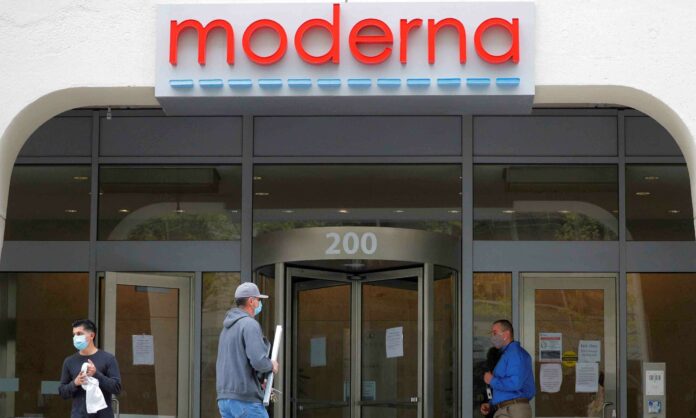CHICAGO: Adding an experimental mRNA-based vaccine from Moderna Inc and Merck & Co reduced the risk that the deadliest skin cancer would spread by 65 per cent over treatment with an immunotherapy alone in a midstage trial, the companies reported on Monday.
The results, presented at the American Society of Clinical Oncology meeting in Chicago, follow earlier promising data from the trial showing the customised mRNA vaccine given in combination with Merck’s Keytruda cut the risk of death or recurrence of melanoma by 44pc compared with Keytruda alone.
The findings add to a growing body of evidence suggesting that mRNA technology, which rose to prominence during the Covid-19 pandemic, can be used to assemble personalised vaccines that train the immune system to attack the specific type of cancer cells in a patient’s tumours.
Scientists have been chasing the dream of vaccines to treat cancer for decades with few successes. Experts say mRNA vaccines, which can be produced in as little as eight weeks, paired with drugs that rev up the immune system may lead to a new generation of cancer therapies.
The hope is for “a completely new treatment paradigm in cancer that will be better tolerated and unique to individual patients’ tumours,” said Dr Jane Healy, an executive overseeing in early cancer treatment development at Merck.
The Merck/Moderna collaboration is one of several combining powerful drugs that unleash the immune system to target cancers with mRNA vaccine technology. Pfizer’s Covid vaccine partner BioNTech SE and Gritstone Bio Inc are taking similar approaches using mRNA technology.
The vaccines all target neoantigens, new mutations that are only present on tumours. Aiming at these unique proteins allows the immune system to kill cancer cells while leaving healthy tissue unscathed. The trick is determining which of many mutations is driving the cancer.
To accomplish this, tumours are removed and their genetic makeup is mapped using next-generation DNA sequencing. Companies use artificial intelligence to predict which mutations will be the most effective targets. These are used to build an individualized vaccine targeting only mutations in the patient’s tumour.
During this process, patients typically receive an immunotherapy such as Keytruda or Roche’s Tecentriq, which block a mechanism cancer uses to hide from the immune system.
‘A starting point’
Long before Covid, companies had been eyeing messenger RNA (mRNA) technology, which carries instructions for cells to make specific proteins, as a vehicle for delivering a cancer vaccine.
Merck and Moderna have been collaborating since 2016. Researchers at Memorial Sloan Kettering Cancer Centre (MSK) in New York began working with Germany’s BioNTech in 2017.
At that time, there was already proof that immunotherapy could work in so-called “hot” tumours, or highly mutated cancers, such as melanoma. There was little hope it would work in “cold” cancers with few mutations, such as pancreatic cancer, said MSK’s Dr Vinod Balachandran.
With standard treatment, 90pc of pancreatic cancer patients die within five years of diagnosis.









































